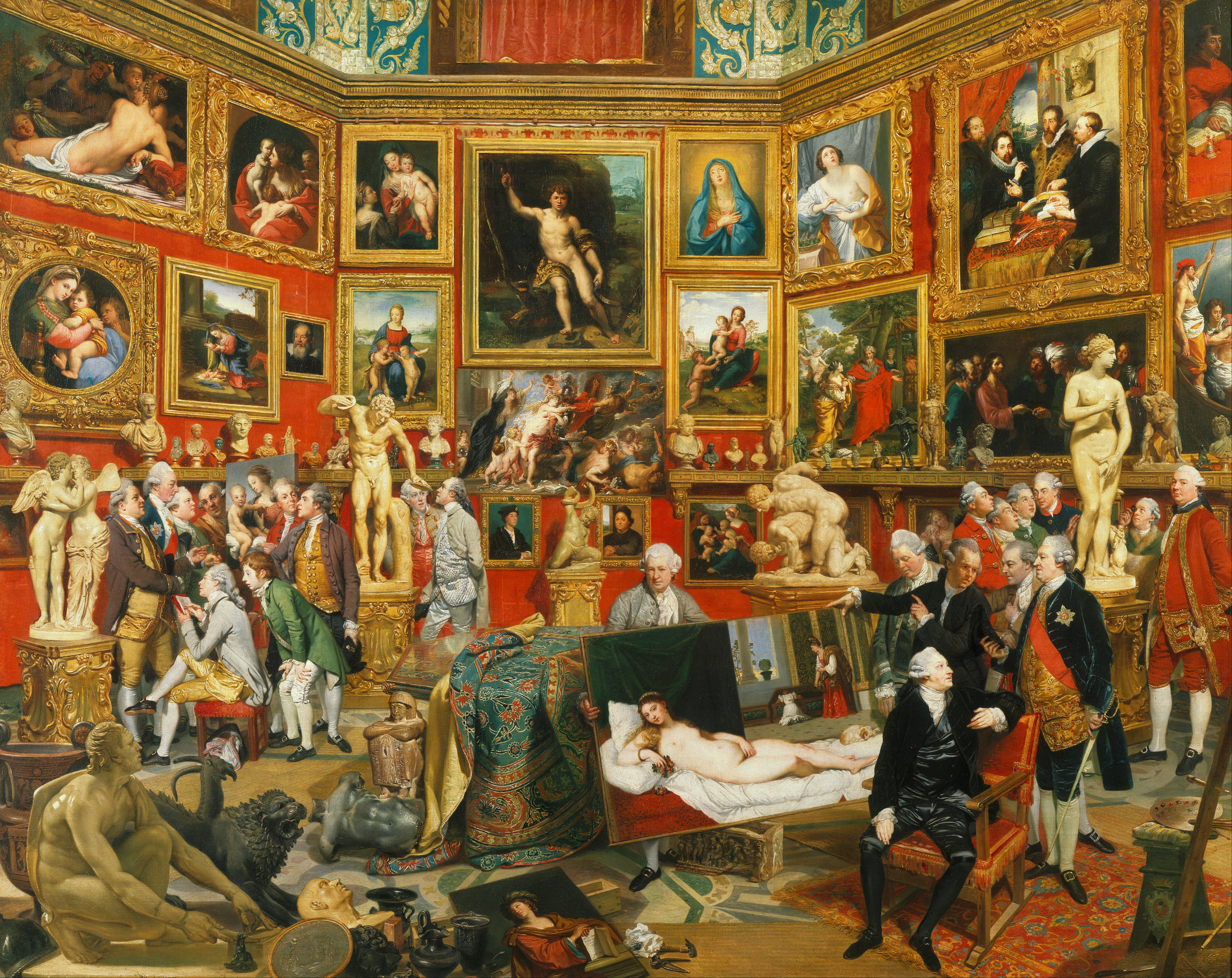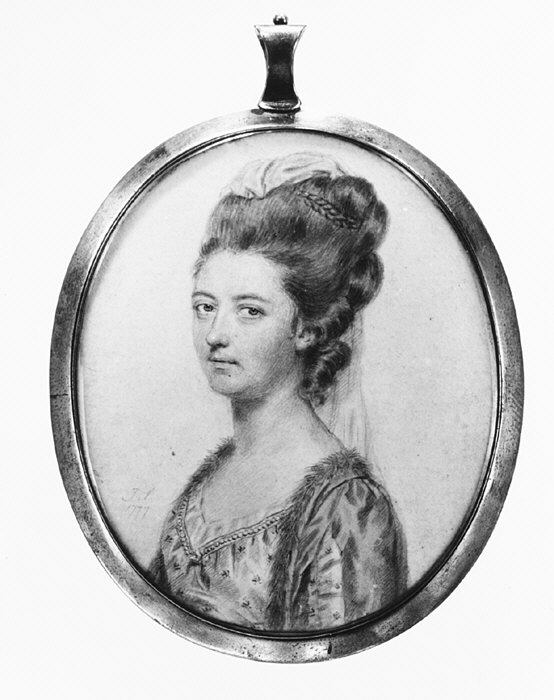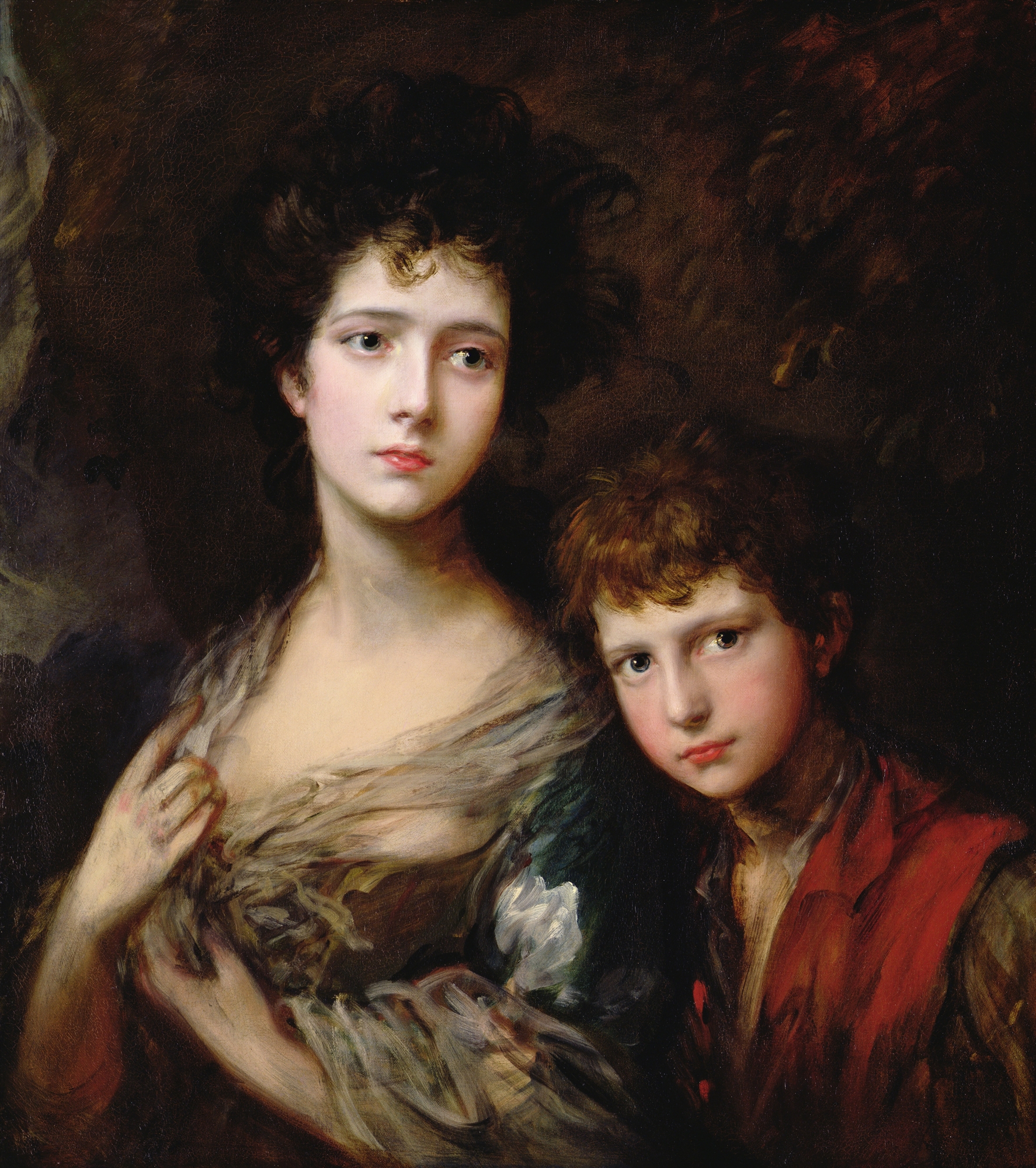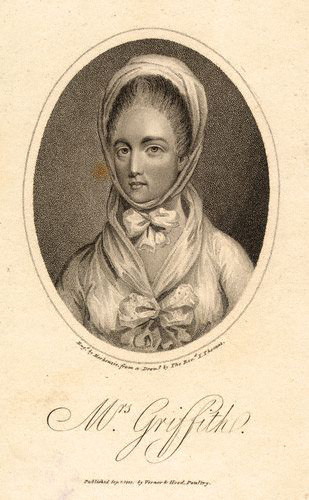|
Benjamin Stillingfleet
Benjamin Stillingfleet (1702–1771) was an English botanist, polymath, and author. Life Benjamin Stillingfleet was born in 1702 in Wood Norton, Norfolk to Mary Ann and Edward Stillingfleet. He was one of four children, and the only son.I. D. Hughes, 'Stillingfleet, Benjamin (1702–1771)', ''Oxford Dictionary of National Biography'', Oxford University Press, Sept 2004; online edn, May 200accessed 26 Feb 2010/ref> His grandfather, Edward Stillingfleet, had died in 1699, but left no money to Benjamin's father as he disapproved of his father's opinions and his marriage. Stillingfleet was educated at Norwich School and excelled at classical languages. He was invited to Trinity College, Cambridge in 1720 at the request of the Master of the college Richard Bentley. Stillingfleet obtained a B.A. in 1723, but his application to become a Fellow at the college was rejected. This was in part due to the influence of Bentley, who is reported to have said that "Stillingfleet was too fine ... [...More Info...] [...Related Items...] OR: [Wikipedia] [Google] [Baidu] |
Johann Zoffany
Johan Joseph Zoffany (born Johannes Josephus Zaufallij; 13 March 1733 – 11 November 1810) was a German neoclassical painter who was active mainly in England, Italy and India. His works appear in many prominent British collections, including the National Gallery, the Tate Gallery and the Royal Collection, as well as institutions in continental Europe, India, the United States and Australia. His name is sometimes spelled Zoffani or Zauffelij (on his grave, it is spelled Zoffanij). Life and career Of noble Hungarian and Bohemian origin, Johan Zoffany was born near Frankfurt on 13 March 1733, the son of a cabinet maker and architect in the court of Alexander Ferdinand, 3rd Prince of Thurn and Taxis. He undertook an initial period of study in a sculptor's workshop in Ellwangen during the 1740s, possibly the shop of Melchior Paulus, and later at Regensburg with the artist . In 1750, he travelled to Rome, entering the studio of Agostino Masucci. In the autumn of 1760, he arriv ... [...More Info...] [...Related Items...] OR: [Wikipedia] [Google] [Baidu] |
Theophrastus
Theophrastus (; grc-gre, Θεόφραστος ; c. 371c. 287 BC), a Greek philosopher and the successor to Aristotle in the Peripatetic school. He was a native of Eresos in Lesbos.Gavin Hardy and Laurence Totelin, ''Ancient Botany'', Routledge, 2015, p. 8. His given name was Tyrtamus (); his nickname (or 'godly phrased') was given by Aristotle, his teacher, for his "divine style of expression". He came to Athens at a young age and initially studied in Plato's school. After Plato's death, he attached himself to Aristotle who took to Theophrastus in his writings. When Aristotle fled Athens, Theophrastus took over as head of the Lyceum. Theophrastus presided over the Peripatetic school for thirty-six years, during which time the school flourished greatly. He is often considered the father of botany for his works on plants. After his death, the Athenians honoured him with a public funeral. His successor as head of the school was Strato of Lampsacus. The interests of Theophr ... [...More Info...] [...Related Items...] OR: [Wikipedia] [Google] [Baidu] |
Worsted
Worsted ( or ) is a high-quality type of wool yarn, the fabric made from this yarn, and a yarn weight category. The name derives from Worstead, a village in the English county of Norfolk. That village, together with North Walsham and Aylsham, formed a manufacturing centre for yarn and cloth in the 12th century, when pasture enclosure and liming rendered the East Anglian soil too rich for the older agrarian sheep breeds. In the same period, many weavers from the County of Flanders moved to Norfolk. "Worsted" yarns/fabrics are distinct from woollens (though both are made from sheep's wool): the former is considered stronger, finer, smoother, and harder than the latter. Worsted was made from the long-staple pasture wool from sheep breeds such as Teeswaters, Old Leicester Longwool and Romney Marsh. Pasture wool was not carded; instead it was washed, gilled and combed (using heated long-tooth metal combs), oiled and finally spun. When woven, worsteds were scoured but not ... [...More Info...] [...Related Items...] OR: [Wikipedia] [Google] [Baidu] |
Charlotte Lennox
Charlotte Lennox, ''née'' Ramsay (c. 1729 – 4 January 1804), was a Scottish novelist, playwright, poet, translator, essayist, and magazine editor, who has primarily been remembered as the author of '' The Female Quixote'', and for her association with Samuel Johnson, Joshua Reynolds and Samuel Richardson. However, she had a long, productive career in her own right. Life Charlotte Lennox was born in Gibraltar. Her father, James Ramsay of Dalhousie, was a Scottish captain in the British Army, and her mother Catherine, née Tisdall (died 1765), was Scottish and Irish. She was baptised Barbara Charlotte Ramsay. Very little direct information on her pre-public life is available, and biographers have extrapolated from her first novel such elements as seem semi-autobiographical. Charlotte lived for the first ten years her life in England before her father, who was a lieutenant in the guards, moved the family to Albany, New York in 1738, where he was lieutenant-governor. He died ... [...More Info...] [...Related Items...] OR: [Wikipedia] [Google] [Baidu] |
Elizabeth Ann Linley
Elizabeth Ann Sheridan ( Linley; September 1754 – 28 June 1792) was an 18th-century English singer who was known to have possessed great beauty. She was the subject of several paintings by Thomas Gainsborough, who was a family friend, Joshua Reynolds and Richard Samuel. An adept poet and writer, she became involved with the Blue Stockings Society and participated in Whig politics. The second of twelve children, and the first daughter of the composer Thomas Linley and his wife Mary Johnson, Elizabeth was herself the wife of the leading playwright Richard Brinsley Sheridan. She was one of the most noted soprano singers of her day, though her husband discouraged her from performing in public after their marriage. Her early life was spent in Bath, the town of her birth, and she probably first appeared on stage beside her brother, Thomas, in 1767 although she started singing in concerts when she was nine years old. ''The Maid of Bath'', a comedy that dramatised and ridicule ... [...More Info...] [...Related Items...] OR: [Wikipedia] [Google] [Baidu] |
Hannah More
Hannah More (2 February 1745 – 7 September 1833) was an English religious writer, philanthropist, poet and playwright in the circle of Johnson, Reynolds and Garrick, who wrote on moral and religious subjects. Born in Bristol, she taught at a school her father founded there and began writing plays. She became involved in the London literary elite and a leading Bluestocking member. Her later plays and poetry became more evangelical. She joined a group opposing the slave trade. In the 1790s she wrote Cheap Repository Tracts on moral, religious and political topics, to distribute to the literate poor (as a retort to Thomas Paine's Rights of Man). Meanwhile, she broadened her links with schools she and her sister Martha had founded in rural Somerset. These curbed their teaching of the poor, allowing limited reading but no writing. More was noted for her political conservatism, being described as an anti-feminist, a "counter-revolutionary", or a conservative feminist. Early lif ... [...More Info...] [...Related Items...] OR: [Wikipedia] [Google] [Baidu] |
Elizabeth Griffith
Elizabeth Griffith (1727 – 5 January 1793) was an 18th-century Welsh-born dramatist, fiction writer, essayist and actress, who lived and worked in Ireland. Biography Elizabeth Griffith was born in Glamorgan, Wales, to Dublin theater manager Thomas Griffith and Jane Foxcroft Griffith on 11 October 1727. /sup> “The family settled in Dublin, where they brought up Elizabeth to be a sociable child, cheerful and at ease among the theatrical community”. In addition to giving her access to the theatre-world, Thomas Griffith educated Elizabeth in French and English literature. Her father died in 1744, which led to economic hardship for the family. Her Dublin acting debut took place on 13 October 1749, when she played Juliet to a considerably older Romeo played by Thomas Sheridan at the Smock Alley Theatre. Griffith specialized in tragic roles, such as Jane Shore in Nicholas Rowe's ''The Tragedy of Jane Shore'' and Cordelia in ''King Lear''. Elizabeth met her kinsman and futur ... [...More Info...] [...Related Items...] OR: [Wikipedia] [Google] [Baidu] |
Catharine Macaulay
Catharine Macaulay (née Sawbridge, later Graham; 23 March 1731 – 22 June 1791), was an English Whig republican historian. Early life Catharine Macaulay was a daughter of John Sawbridge (1699–1762) and his wife Elizabeth Wanley (died 1733) of Olantigh. Sawbridge was a landed proprietor from Wye, Kent, whose ancestors were Warwickshire yeomanry. Macaulay was educated privately at home by a governess. In the first volume of her ''History of England'', Macaulay claimed that from an early age she was a prolific reader, in particular of "those histories which exhibit liberty in its most exalted state in the annals of the Roman and Greek Republics...rom childhoodliberty became the object of a secondary worship". However this account is at odds with what she told her friend Benjamin Rush, to whom she described herself as "a thoughtless girl till she was twenty, at which time she contracted a taste for books and knowledge by reading an odd volume of some history, which she picked ... [...More Info...] [...Related Items...] OR: [Wikipedia] [Google] [Baidu] |
Anna Laetitia Barbauld
Anna Laetitia Barbauld (, by herself possibly , as in French, Aikin; 20 June 1743 – 9 March 1825) was a prominent English poet, essayist, literary critic, editor, and author of children's literature. A "woman of letters" who published in multiple genres, Barbauld had a successful writing career that spanned more than half a century. She was a noted teacher at the Palgrave Academy and an innovative writer of works for children. Her primers provided a model for more than a century. Her essays showed it was possible for a woman to be engaged in the public sphere; other women authors such as Elizabeth Benger emulated her. Barbauld's literary career spanned numerous periods in British literary history: her work promoted the values of the enlightenment and of sensibility, while her poetry made a founding contribution to the development of British Romanticism. Barbauld was also a literary critic. Her anthology of 18th-century novels helped to establish the canon as it is known t ... [...More Info...] [...Related Items...] OR: [Wikipedia] [Google] [Baidu] |
Elizabeth Montagu
Elizabeth Montagu (née Robinson; 2 October 1718 – 25 August 1800) was a British social reformer, patron of the arts, salonnière, literary critic and writer, who helped to organize and lead the Blue Stockings Society. Her parents were both from wealthy families with strong ties to the British peerage and learned life. She was sister to Sarah Scott, author of ''A Description of Millenium icHall and the Country Adjacent''. She married Edward Montagu, a man with extensive landholdings, to become one of the richer women of her era. She devoted this fortune to fostering English and Scottish literature and to the relief of the poor. Early life She was born in Yorkshire to Matthew Robinson (1694–1778) of West Layton and Edgeley in Yorkshire, and Elizabeth daughter of Robert Drake of Cambridge, by his wife Sarah Morris, daughter of Thomas Morris of Mount Morris, Monks Horton. Elizabeth was the eldest of their three daughters. Conyers Middleton, the prominent Cambridge d ... [...More Info...] [...Related Items...] OR: [Wikipedia] [Google] [Baidu] |
Thomas Newton
Thomas Newton (1 January 1704 – 14 February 1782) was an English cleric, biblical scholar and author. He served as the Bishop of Bristol from 1761 to 1782. Biography Newton was educated at Trinity College, Cambridge and was subsequently elected a fellow of Trinity. He was ordained in the Church of England and continued scholarly pursuits. His more remembered works include his annotated edition of ''Paradise Lost'', including a biography of John Milton, published in 1749. In 1754 he published a large scholarly analysis of the prophecies of the Bible, titled ''Dissertations on the Prophecies''. In his 1761 edition of Milton's poetry, he gave the title ''On His Blindness'' to Sonnet XIX, '' When I Consider How My Light is Spent''. Newton was appointed the Bishop of Bristol in 1761 and in 1768 became the Dean of St Paul's Cathedral in London. He has been considered a Christian universalist. One of Newton's famous quotes concerns the Jewish people: The preservation of the ... [...More Info...] [...Related Items...] OR: [Wikipedia] [Google] [Baidu] |
Paradise Lost
''Paradise Lost'' is an epic poem in blank verse by the 17th-century English poet John Milton (1608–1674). The first version, published in 1667, consists of ten books with over ten thousand lines of verse. A second edition followed in 1674, arranged into twelve books (in the manner of Virgil's ''Aeneid'') with minor revisions throughout. It is considered to be Milton's masterpiece, and it helped solidify his reputation as one of the greatest English poets of all time. The poem concerns the biblical story of the Fall of Man: the temptation of Adam and Eve by the fallen angel Satan and their expulsion from the Garden of Eden. Composition In his introduction to the Penguin edition of ''Paradise Lost'', the Milton scholar John Leonard notes, "John Milton was nearly sixty when he published ''Paradise Lost'' in 1667. The biographer John Aubrey (1626–1697) tells us that the poem was begun in about 1658 and finished in about 1663. However, parts were almost certainly written ... [...More Info...] [...Related Items...] OR: [Wikipedia] [Google] [Baidu] |








